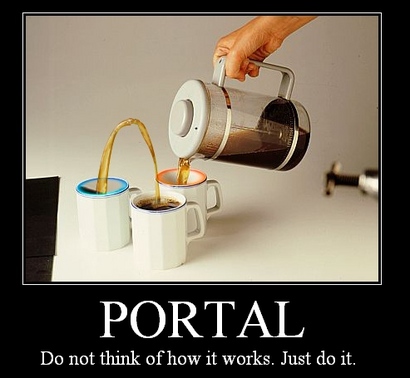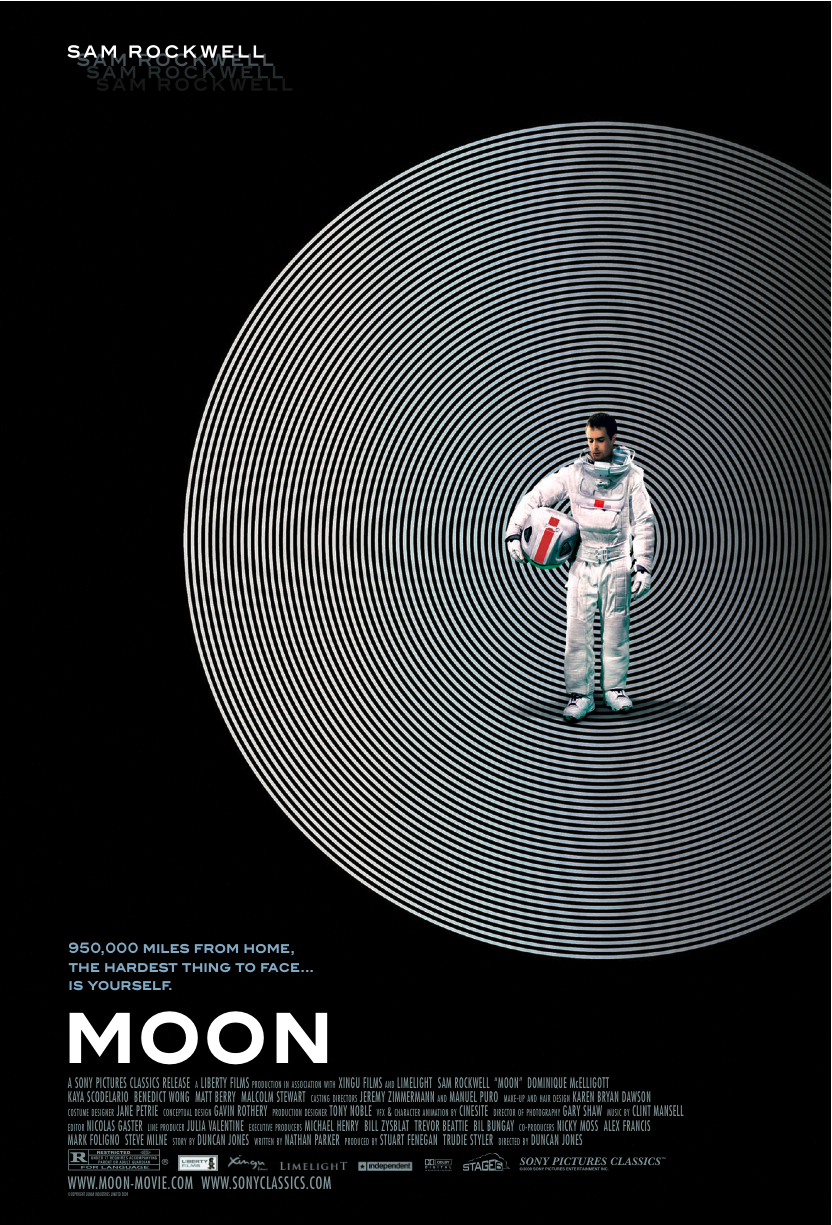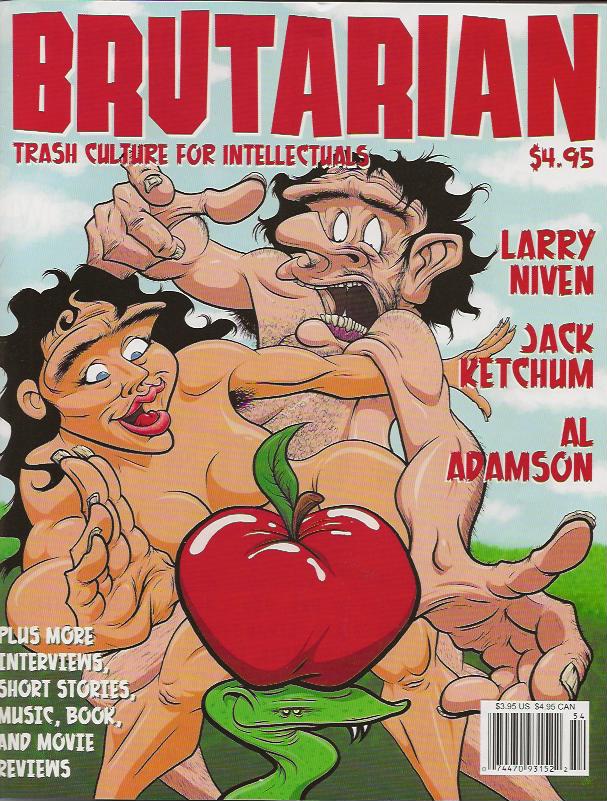Portal 2
 Aside from being a boozer, an anti-pants activist from long before the advertising world latched onto the movement, and, oh yeah, a writer, I’m also a casual gamer, almost exclusively in first-person shooters. Maybe it’s the virtual carnage, maybe it’s the immersion, maybe it’s the fact that because of the cropped nature of the HUD I can imagine my avatar is not wearing any pants while I slaughter zombies/nazis/robots/whatever. Whatever the reason, I like me some FPS games, and Portal from Valve was no exception. Now that they’ve announced Portal 2, I’m reminded of how great the first one was.
Aside from being a boozer, an anti-pants activist from long before the advertising world latched onto the movement, and, oh yeah, a writer, I’m also a casual gamer, almost exclusively in first-person shooters. Maybe it’s the virtual carnage, maybe it’s the immersion, maybe it’s the fact that because of the cropped nature of the HUD I can imagine my avatar is not wearing any pants while I slaughter zombies/nazis/robots/whatever. Whatever the reason, I like me some FPS games, and Portal from Valve was no exception. Now that they’ve announced Portal 2, I’m reminded of how great the first one was.
I was dubious at first: The idea behind Portal is that you have a wormhole gun of sorts; fire it at one surface and portal A opens, fire it at surface B and portal B opens. Step through portal A and you emerge from portal B. At first glance I thought this sounded a little dull and cumbersome, but as with just about everything else, I was wrong: Portal was easily the best game I’ve played in years. One reason it was so enjoyable was the unique game concept of the portal gun, which made the game basically one huge puzzle. You weren’t just running and gunning and occasionally pressing buttons, you were solving what amounted to rich physics puzzles. This is more fun than the phrase “rich physics puzzle” might lead you to believe.
The other, equally important reason Portal rocks, though, is the storytelling.
That’s one of the things I like so much about first-person shooter games; they feel like you’re in a story. There’s usually a plot, some character development, and in the better-designed ones some branching of the story based on decisions you make. Portal has a great story, which I won’t spoil too much aside from the premise: You wake up in a “testing facility” which appears to have been suddenly and chaotically abandoned. Your only companion is a sentient computer that has awakened you for a testing session that is designed, it becomes increasingly clear, to kill you. You have to be very clever with the Portal Gun in order to survive.
What really makes the story great, aside from clever, hilarious writing and very good voice acting, is the way the entire story is Shown and not Told. “Show Don’t Tell” is a cliche of writing workshops, and should never be regarded as an unbreakable rule (just like all rules, there are times and places where breaking it is genius) but rules like this get repeated for a reason. Portal is a monument to the power of Not Telling. You only get the information you can glean – from things the computer says, from graffiti on the walls, from frickin’ slide presentations in empty conference rooms – while surviving the murderous “tests” the computer throws at you. By the end of the game, if you’ve explored energetically and paid attention, you have a pretty good idea what’s happened.
The game’s writers could have had someone show up and explain everything to you in a nifty two-minute narration, yes. And this would have been boring, and reduced the game quite a bit – though the genius of the game’s design itself would have saved things. As a story, Portal works partly because the writers decided to rely on the intelligence of their audience and let us piece together the story from what we’re shown.
A good example of this is the way you figure out, slowly, that the Artificial Intelligence putting you through your paces is not, in fact, interested at all in your safety. At first the AI speaks to you in pleasant, programmed-sounding platitudes about test subject safety, but slowly, subtly, you detect some hostility, and by the time you get to the first test chamber that has some real, actual danger for you, you don’t believe the AI when it tells you that you won’t actually be hurt if you fail the test. This is good, solid storytelling: By this point you know the AI is not your friend, even though no one has told you and you’ve only had subtle visual and audio clues. A lesser storyteller might have had a cutscene where you witness or overhear something damning, or had the AI make a bombastic speech revealing its hatred of you, but Portal commits to the character of the AI: Insane, and possibly, on some level, unaware of its own evil intentions.
Of course, in a game storytelling is second to, you know, the game, and happily Portal is an exceptional game, that rare game that combined puzzle-solving with a visceral action interface. They are puzzles, sure, but since you (or your avatar) are the marble that has to be guided through the puzzle, there’s an exhilaration to solving the puzzles you wouldn’t get if they were on paper or mere models. When you jump into a portal from a high ledge and pop up from another portal, you soar into the air, disoriented and terrified. It’s great fun. Still, unlike most video games, if someone told me a novelization of Portal or a movie version were coming out, I might actually be interested. And that is saying something.


